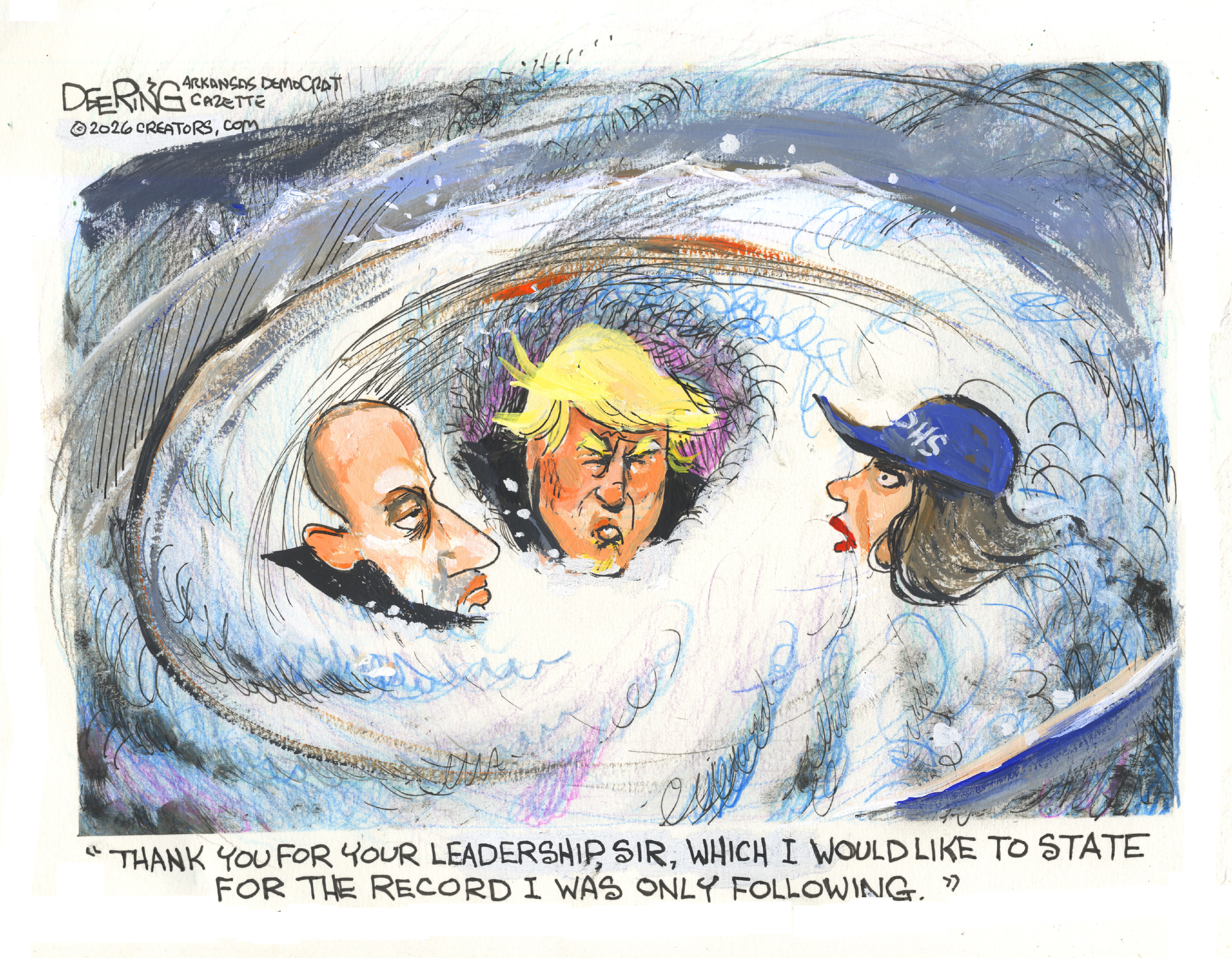Iran's dispirited opposition
A ruthless government crackdown on dissent squelched planned rallies to mark the 31st anniversary of the Islamic Revolution.
A free daily email with the biggest news stories of the day – and the best features from TheWeek.com
You are now subscribed
Your newsletter sign-up was successful
Iran’s pro-democracy opposition was delivered a chilling setback last week when a ruthless government crackdown on dissent squelched planned rallies to mark the 31st anniversary of the Islamic Revolution. The regime arrested hundreds of people in the days leading up to the anniversary, and troops cut off streets around Tehran, preventing dissidents from gathering, other than in small groups. “We were defeated,” said one protester.
At a massive pro-regime rally, President Mahmoud Ahmadinejad boasted that Iran has the capacity to make weapons-grade nuclear fuel. Secretary of State Hillary Clinton, during a Middle East trip, said Iran was becoming a “military dictatorship,” and she called for tougher sanctions to isolate the mullahs.
Iran’s pro-democracy movement needs the U.S. more than ever, said Reuel Marc Gerecht in The Weekly Standard. Despite recent setbacks, it continues to wage “the most momentous struggle for the Muslim heart and soul in the Middle East.” Yet by focusing U.S. policy on Iran’s nuclear posture, President Obama “gives the distinct impression that he’d rather have a nuclear deal” than a democratic Iran.
The Week
Escape your echo chamber. Get the facts behind the news, plus analysis from multiple perspectives.

Sign up for The Week's Free Newsletters
From our morning news briefing to a weekly Good News Newsletter, get the best of The Week delivered directly to your inbox.
From our morning news briefing to a weekly Good News Newsletter, get the best of The Week delivered directly to your inbox.
It’s not either/or, said David Ignatius in The Washington Post. Obama can use sanctions to try to make a deal on the nuclear issue while still “betting on Iranian democracy in the long run.” Iran already has “serious economic problems,” said Trudy Rubin in The Philadelphia Inquirer. Additional sanctions will “remind Iranians of the government’s failure to provide social and economic justice, and of Iran’s isolation.”
The short-term prospects for the opposition seem bleak, said Gerald Seib in The Wall Street Journal, but their movement—and its demands for democracy and liberalization—won’t go away. And if Iran’s Islamic regime does eventually collapse, the repercussions would be immense. The 1979 revolution inspired “Islamic fundamentalist sentiment” across the Muslim world, helping to spawn al Qaida. “Imagine a world in which an unwinding of Iran’s regime produced an unwinding of all those ripple effects.”
A free daily email with the biggest news stories of the day – and the best features from TheWeek.com
-
 Russia’s ‘cyborg’ spy pigeons
Russia’s ‘cyborg’ spy pigeonsUnder the Radar Moscow neurotech company with Kremlin-linked funding claims to implant neural chips in birds’ brains to control their flight, and create ‘bio-drones’
-
 Political cartoons for February 8
Political cartoons for February 8Cartoons Sunday’s political cartoons include going down the drain, American history, and more
-
 Touring the vineyards of southern Bolivia
Touring the vineyards of southern BoliviaThe Week Recommends Strongly reminiscent of Andalusia, these vineyards cut deep into the country’s southwest
-
 The billionaires’ wealth tax: a catastrophe for California?
The billionaires’ wealth tax: a catastrophe for California?Talking Point Peter Thiel and Larry Page preparing to change state residency
-
 Bari Weiss’ ‘60 Minutes’ scandal is about more than one report
Bari Weiss’ ‘60 Minutes’ scandal is about more than one reportIN THE SPOTLIGHT By blocking an approved segment on a controversial prison holding US deportees in El Salvador, the editor-in-chief of CBS News has become the main story
-
 Has Zohran Mamdani shown the Democrats how to win again?
Has Zohran Mamdani shown the Democrats how to win again?Today’s Big Question New York City mayoral election touted as victory for left-wing populists but moderate centrist wins elsewhere present more complex path for Democratic Party
-
 Millions turn out for anti-Trump ‘No Kings’ rallies
Millions turn out for anti-Trump ‘No Kings’ ralliesSpeed Read An estimated 7 million people participated, 2 million more than at the first ‘No Kings’ protest in June
-
 Ghislaine Maxwell: angling for a Trump pardon
Ghislaine Maxwell: angling for a Trump pardonTalking Point Convicted sex trafficker's testimony could shed new light on president's links to Jeffrey Epstein
-
 The last words and final moments of 40 presidents
The last words and final moments of 40 presidentsThe Explainer Some are eloquent quotes worthy of the holders of the highest office in the nation, and others... aren't
-
 The JFK files: the truth at last?
The JFK files: the truth at last?In The Spotlight More than 64,000 previously classified documents relating the 1963 assassination of John F. Kennedy have been released by the Trump administration
-
 'Seriously, not literally': how should the world take Donald Trump?
'Seriously, not literally': how should the world take Donald Trump?Today's big question White House rhetoric and reality look likely to become increasingly blurred